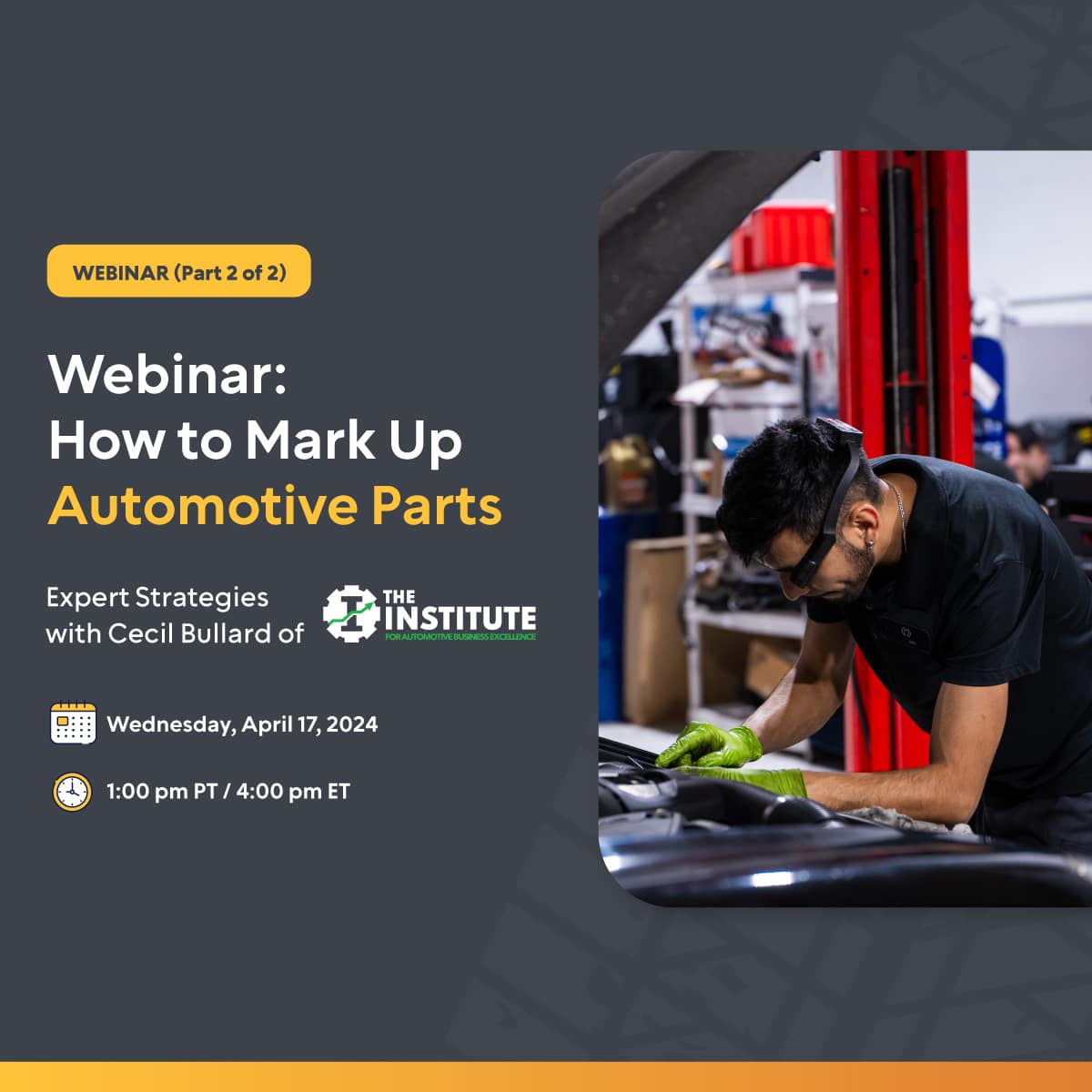
It’s no secret that the auto repair industry faces a critical shortage of technicians. Many technicians are leaving the industry due to various frustrations and unmet needs. If the industry wants to turn this shortage around, let’s make sure we listen to the thoughts and voices of those who are the industry’s backbone — our auto technicians.
We spoke with a couple of dozen technicians in person and online to hear their thoughts and opinions, and we want to share what we learned to help amplify their voices in the industry. To be respectful of respondents who opened up to us, we have anonymized all quoted responses below.
Here are the key themes that emerged from our conversations with technicians:
Techs are Hungry for Ongoing Training
“Techs need ongoing training. Vehicles are getting smarter, so should technicians,” said one Massachusetts-based technician.
Vehicles are swiftly evolving with the constant introduction of new technologies and diagnostic tools. This rapid development underscores the need for ongoing technician training. However, the feedback we heard indicates that technicians face challenges in getting the training they need.
While technicians recognize the importance of continual learning, the shops they work for often do not prioritize or budget for their training and development. “Training is out there,” said one technician, “There are a lot of different options — some shop owners just don’t want to invest.”
Unfortunately, we were not surprised that lack of training was brought up by the technicians we spoke to. In October 2023, we surveyed 618 auto repair shop owners and managers, and 45% highlighted “The Technician Shortage” as the top concern. However, when asked about their top three goals for the next 12 months, a notable gap existed between this top foreseen challenge and the action plans and steps needed to tackle it. “Attending Training and/or Sending Team to Training” was selected by only 8% of respondents as a priority. (See full report)
One technician emphasized, “Sending techs to training should be mandatory, not an option. Managers should focus on the individual tech based on what skills they lack and choose the appropriate training.”
Takeaway for shop owners: Technicians want to uplevel themselves with training. This desire is fantastic because if they uplevel themselves, the quality and breadth of your shop’s services will also uplevel. Prioritize sending your technicians to training. Make a mandatory training plan and budget the time and money to execute it.
Training is Key, but so is Mentorship
In general, technicians want to be set up for success. If you chat with successful folks in various roles across the auto repair industry, many will speak of a mentor or coach — someone who challenged, pushed, helped, and believed in them. Technicians not only want training; they also want to be mentored.
One technician emphasized the need for solid mentors for apprentices, “Apprentice technicians must be assigned to a competent mentor and not left to sink or swim.”
One shop manager who chimed in on our online discussion agreed with the need for solid mentorship for technicians, saying, “If a B-level task is assigned to a C-level technician, this can be a great challenge as long as mentoring and training are available to help ensure success.”
Takeaway for shop owners: Be proactive and approachable. Take the time to learn about your technicians. Find out who they want to be “when they grow up” and help them get there. Work directly with your technicians to figure out how you can help set them up for success to be the best they can be today and into the future.
For example, say you notice a technician who makes a lot of mistakes. Ask yourself if they are being assigned jobs above their skill set. How can you come alongside them? Can you send them to training to fill their skill gap? Can you have one of your more skilled technicians help mentor and train them? Be proactive in helping them to improve and thrive in their role.
Labor Rates Rise, but Technician Pay Stays Stagnant
The disparity between the rising cost of living and stagnant technician wages was a recurring theme. Technicians are actively watching labor rates rise, but their pay does not. “The cost of living keeps rising, but pay always lags behind,” said an Illinois-based technician. When pay lags, many technicians simply cannot stay in the industry out of necessity because they cannot support themselves and their families.
This aligns with industry research on the technician shortage. Here’s one excerpt from a MarketWatch article:
“Our team’s research found that the average wage for an automotive technician is about 20% lower than the national average — which, according to the U.S. Bureau of Labor Statistics (BLS), is $61,900. With the average yearly salary of an automotive technician sitting at $49,690, current and potential technicians seem to be eying other opportunities to keep up with the cost of living.”
Takeaway for shop owners: Take the time to evaluate your technician pay structure and update it to create an effective pay plan to provide a competitive wage. There are many free guides and tips across the industry, such as this Ratchet + Wrench article:
SOP: What’s the Best and Most Effective Pay Plan for Technicians?
Need for Proper Tools
A well-equipped shop is essential for efficient diagnostics and repairs. Technicians expressed frustration when they lack the tools to do their jobs effectively, leading to delays and subpar work. There is a clear advantage when a shop has the proper scan tools, equipment, and software to enable the team to do their job well.
Proper tools include diagnostic software and the hardware needed to set your team up for success. They also include tools that speed their jobs, such as software for digital vehicle inspections or streamlined parts ordering through solutions like PartsTech.
Again, of the 618 shop owners and managers we surveyed last year, 45% identified the technician shortage as their top foreseen challenge. Proper tooling is critical to nurturing a successful team of technicians, yet only 7% of those surveyed selected “Implementing New Tools and Technology” as a priority.
Takeaway for shop owners: Evaluate your tools and identify gaps. Seek input from your team, determine the most significant gaps, and start budgeting to invest in the necessary tools and technology for your shop to set your team up for success.
Just food for thought: Given how often vehicle technology changes, one technician we heard from wonders if shops should consider the benefits of specializing in specific vehicle brands so that they can prioritize getting the right factory tools for those brands instead of trying to keep up with having the right tools for every single vehicle make and model. “I believe a shop should specialize in one or a very few car lines, and the factory tooling should be available for those vehicles. Trying to serve whatever comes through the door is a very poor business model for shops these days.”
Some Customers May Not Be Worth Servicing
Some customers are difficult because they (or their vehicles) require countless hours of lost time and money to service. No shop wants to tell a new customer they can’t service their vehicle or communicate to a difficult customer that you can no longer service them. Still, we heard comments from technicians who believe it would be worth it for shop owners to take a step back for each customer who walks into the shop and ask themselves if it’s a viable business relationship. “Some customers do not make for a viable business relationship,” stated one technician, “and it would be more profitable to give them $50 to walk out the door and never return before losing untold time/opportunity cost with them.”
We spoke with one shop manager in Campbell, California, who wholeheartedly supports this belief. He said, “We hate to do it and try not to, but from time to time, we must inform a new customer that we cannot service their vehicle, or we have to tell a more established customer that we can no longer provide services to them. We do it to protect our business from ultimate financial loss and time loss.”
Takeaway for shop owners: Telling customers you cannot or can no longer service their vehicle may be more beneficial than continuously sinking lost time and money into them. Even if it’s hard, protect your team and your bottom line from customers and vehicles that will ultimately steal time and money from your business.
The Industry Needs to Work Together to Address the Technician Shortage Early
A couple of technicians called out that the industry needs to help address the technician shortage by investing in education and mentorship programs for young students. They would like to see the industry working to start getting into schools at the middle school level to promote the comeback of trades — specifically to create excitement around becoming an auto technician.
Takeaway for shop owners: Find ways to impact the next generation to address the technician shortage. Encouraging young minds and providing positive examples of what it’s like to be an auto technician can cultivate the next generation of skilled technicians. One technician suggested, “Shop owners should be active on school boards” to see ideas like this through.
Let’s work together as an industry to acknowledge technicians’ insights and create a more supportive and efficient work environment to attract and retain technicians.



